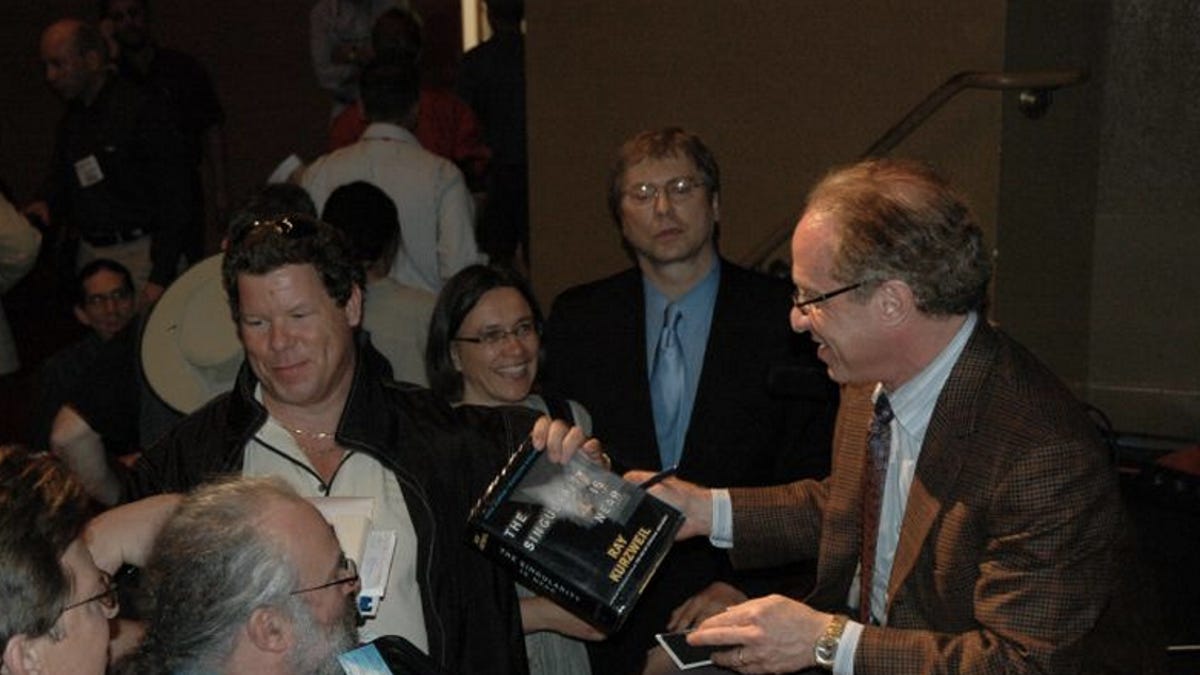Google's Ray Kurzweil hire could yield some good returns
Company's hiring of Ray Kurzweil will have implications far beyond Google's fun projects. His machine-learning know-how could affect networks, data centers, and algorithms too.

Google has brought on futurist and artificial-intelligence expert Ray Kurzweil as director of engineering, and there could be some real returns on the company's high-profile hire.
In a statement, Kurzweil confirmed that he'd be joining Google. He noted that his interest in reading-technology, artificial intelligence, self-driving cars, and other such "Jetsons"-like things line up nicely with Google's efforts.
He said:
Google has demonstrated self-driving cars, and people are indeed asking questions of their Android phones. It's easy to shrug our collective shoulders as if these technologies have always been around, but we're really on a remarkable trajectory of quickening innovation, and Google is at the forefront of much of this development.
Will Kurzweil be more than just a figurehead? Probably. Google will get some returns on its investment in Kurzweil for sure. Here are some of the positive side effects from Google's latest hire.
Talent and recruiting engineers. There aren't enough engineers to keep tech giants like Google, Microsoft, Apple, and others happy. Saying you report to a futurist -- even indirectly -- will have credibility beyond stock options for most engineers.
Data centers, networks, and algorithms need machine learning. Kurzweil's ideas get noticed because he's ahead of the curve and he focuses on simple practical systems. However, machine learning has implications for the network, Google's algorithms, and the data center. Look no further than IBM and Watson for examples of how machine learning can have broad implications. Should Kurzweil boost machine learning, Google is likely to be able to draw a straight line between its infrastructure and its high-profile hire.
Language processing has big mobile implications. Kurzweil's know-how when it comes to reading and talking machines could easily make its way into Android, which is already becoming very helpful on many fronts.
Google's buzz-o-meter. Kurzweil's work can easily be applied to the company's efforts on self-driving cars and its high-tech glasses, both of which could become popular at some point. Kurzweil gives Google some science-fiction-becomes-reality cred. The buzz is hard to measure, but it's certainly not a bad perk for the company.
In his book, "The Singularity Is Near: When Humans Transcend Biology," Kurzweil offered his view of how science fiction becomes reality:
In this new world, there will be no clear distinction between human and machine, real reality and virtual reality. We will be able to assume different bodies and take on a range of personae at will. In practical terms, human aging and illness will be reversed; pollution will be stopped; world hunger and poverty will be solved. Nanotechnology will make it possible to create virtually any physical product using inexpensive information processes and will ultimately turn even death into a soluble problem.
Kurzweil expects that artificial intelligence will develop far beyond the human mind in a few decades, leading to what he calls "The Singularity," in which technology changes profoundly alter human history. "The implications include the merger of biological and nonbiological intelligence, immortal software-based humans, and ultrahigh levels of intelligence that expand outward in the universe at the speed of light," he wrote.
This story first appeared on ZDNet. Additional reporting by Dan Farber.

